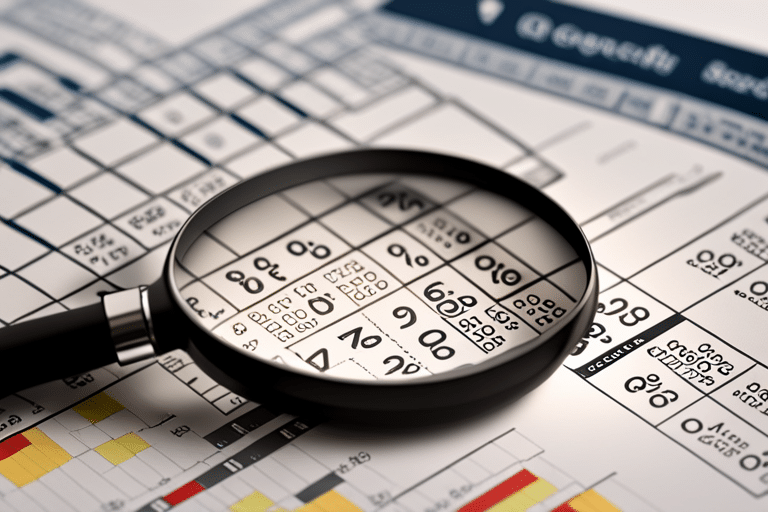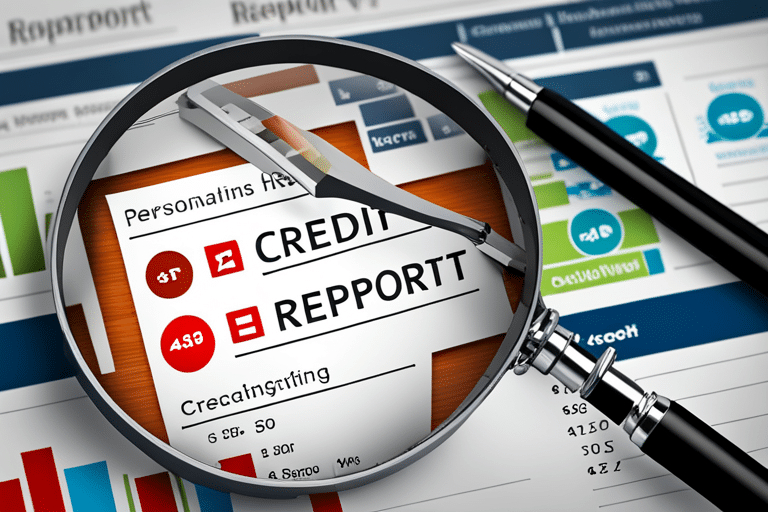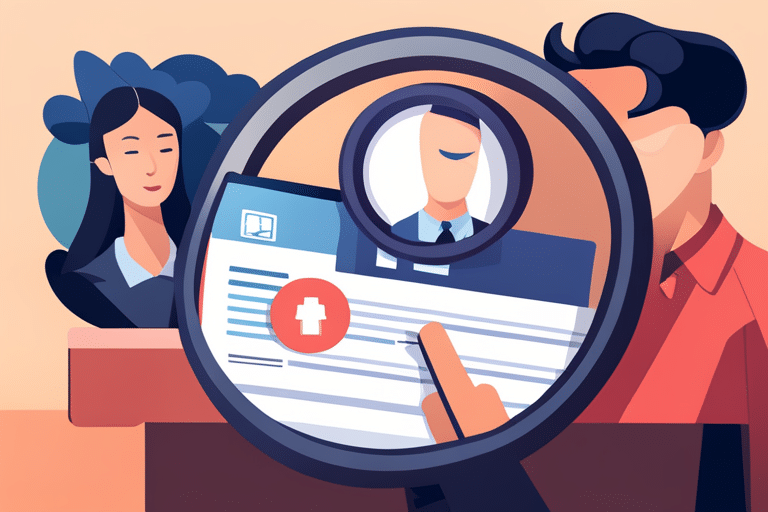Did you know that 1 in 5 credit reports contain errors? Yeah, it’s a pretty staggering statistic.
But fear not, my friend! In this article, we’re going to show you how to dispute those pesky mistakes and boost your credit score like a pro.
No more stressing out about inaccurate information dragging you down. We’ve got your back and we’re here to make the process easy peasy lemon squeezy.
So grab a cup of coffee, sit back, and let’s dive into the world of credit report disputes!
Key Takeaways
- Accurate credit reports are crucial for improving credit scores.
- Gathering the necessary documentation and evidence is essential when disputing errors on your credit report.
- Inaccurate information on your credit report can negatively impact your credit score and financial reputation.
- Preventing credit report errors through good financial habits and regular monitoring is key to maintaining a healthy credit score.
Understanding the Importance of Accurate Credit Reports

You need to understand why accurate credit reports are important for improving your score. I mean, come on, who doesn’t want a better credit score? It’s like having the VIP pass to financial opportunities. So here’s the deal: accurate credit reports are crucial because they form the foundation of your credit history. Just like building a sturdy house, you need a solid base to support all those fancy upgrades.
Imagine this – you’re at a party and someone asks you about your credit history. You confidently say, ‘Well, my credit report is as accurate as it gets!’ Suddenly, everyone is impressed by your mastery of financial responsibility. That’s the power of having an accurate credit report.
Now let me break it down for you in simple terms: an accurate credit report means that all the information listed there reflects reality. It’s like looking in the mirror and seeing yourself exactly as you are – no fake mustaches or Photoshopped abs.
But why does accuracy matter so much? Well, when lenders and creditors review your credit report to determine whether they should give you that shiny new loan or line of credit, they rely on its accuracy to make their decision. If there are errors or inaccuracies on your report, it could lead to missed opportunities or even higher interest rates.
Gathering the Necessary Documentation

To gather the necessary documentation, start by obtaining copies of your bank statements and any receipts or invoices related to the disputed charges.
Now, I know what you’re thinking: ‘Why do I need all this paperwork? Can’t I just argue my case with a well-timed eye roll and a sassy comment?’ Well, my friend, while that might work in the movies, building a strong case requires some good old-fashioned evidence.
So roll up those sleeves and let’s get organized!
Here are four steps to help you organize your evidence like a pro:
-
Make a checklist: Write down all the documents you need to gather. This will keep you focused and prevent any important pieces of evidence from slipping through the cracks.
-
Get organized: Create folders for each category of evidence – bank statements, receipts, invoices, etc. Label them clearly so you don’t end up playing hide-and-seek with your paperwork later on.
-
Keep it chronological: Arrange your documents in chronological order to create a clear timeline of events. This will make it easier for anyone reviewing your case to understand what happened and when.
-
Highlight key information: Use highlighters or sticky notes to mark any crucial details in your documents. This will draw attention to important facts and help you make your point more effectively.
Reviewing Your Credit Report for Errors

Hey, you credit maven! Let’s dive into the fascinating world of reviewing your credit report for errors.
Brace yourself for common reporting mistakes that will make you go ‘What were they thinking?’ and get ready to dispute inaccurate information like a pro.
Oh, and did I mention the impact on your credit score? It’s like a rollercoaster ride of emotions. But don’t worry, we’re here to guide you through it all with our witty banter and lighthearted approach.
Let’s get started!
Common Reporting Mistakes
There’s a high likelihood of common reporting mistakes on your credit report that can negatively impact your score. But fear not, my credit-savvy friend! Let me shed some light on these pesky errors and show you how to tackle them like a pro.
-
Credit Report Inquiries: Sometimes, those sneaky inquiries sneak their way onto your report without your knowledge. It’s like an uninvited guest crashing your party! Keep an eye out for unauthorized inquiries and dispute them faster than you can say ‘credit repair.’
-
Disputing Late Payment Errors: Ah, the notorious late payment error. It’s like accidentally wearing socks with sandals – a fashion faux pas that sticks out like a sore thumb. If you spot any late payments that aren’t yours, put on your detective hat and gather evidence to prove it was a mistake.
-
The Phantom Account: Beware of phantom accounts haunting your credit report! They appear out of thin air, wreaking havoc on your score and causing confusion in the process. Spot one? Don’t hesitate to exorcise it by disputing its existence.
-
Identity Mix-Up Mishaps: Imagine being mistaken for someone else at a party; it’s awkward, right? Well, credit reports have their own version of identity mix-ups too! Make sure all the information listed is truly yours; otherwise, kindly inform the credit bureaus about their little case of mistaken identity.
Disputing Inaccurate Information
Keep an eye out for any inaccurate information that could be negatively affecting you, and take the necessary steps to correct it. Nobody wants their credit report to be like a bad relationship status on Facebook: complicated and full of errors. Luckily, there’s a dispute resolution process in place to help you fix those mistakes. So, grab your detective hat and get ready to uncover the truth!
But before we dive into the nitty-gritty of disputing inaccurate information, let’s take a moment to visualize the emotional rollercoaster that comes with discovering errors on your credit report:
| Feeling | Reaction | Resolution |
|---|---|---|
| Frustration | Sigh | Correct the mistake |
| Anger | Grrr | File a dispute |
| Relief | Phew | Receive updated report |
Now that we’ve emotionally prepared ourselves (cue Rocky music), let’s tackle the dispute resolution process head-on and make those inaccuracies disappear! Just remember, accuracy is key when it comes to your credit report.
And speaking of accuracy, let’s explore how these inaccuracies can impact your credit score…
Impact on Credit Score
Feeling frustrated or angry about the inaccuracies on your credit report? Those errors can have a significant impact on your overall credit score. But fear not, dear reader! There’s hope for you yet. Here are four things you need to know about the repercussions and long-term effects of these mistakes:
-
It’s like a bad hair day: Just as one unruly strand can ruin your entire hairstyle, one error on your credit report can wreak havoc on your score.
-
The domino effect: A lower credit score means higher interest rates, which leads to more money flying out of your pocket.
-
Bye-bye dream home: Inaccurate information may prevent you from getting approved for that mortgage or loan you’ve been eyeing.
-
Time is of the essence: Resolving these issues takes time and effort, but it’s essential to ensure financial stability in the long run.
Identifying Common Credit Report Errors

To identify common credit report errors, you’ll want to carefully review each section for inaccuracies and discrepancies. Credit reports can sometimes be as confusing as trying to solve a Rubik’s Cube blindfolded while riding a unicycle. But fear not, intrepid master of credit! I’m here to guide you through the treacherous waters of credit report mistakes with wit, charm, and the occasional bad pun.
Let’s start by taking a closer look at some common credit report mistakes that could be lurking in the shadows, ready to sabotage your financial reputation. Picture this: on one side of our table is the “Mistake” column and on the other side is the “Consequence” column. It’s like a game show where every wrong answer leads to lower credit scores!
| Mistake | Consequence |
|---|---|
| Missed Payments | Ding! Ding! Your score takes a hit! |
| Identity Theft | The thief wins big while you suffer! |
| Outdated Information | Misleading lenders since forever ago! |
| Inaccurate Personal Info | Mismatched names? More like mismatched scores! |
| Duplicate Accounts | Racking up debt twice as fast—what a deal! |
Now that we’ve identified these sneaky little devils, let’s talk about how to prevent them from wreaking havoc on your precious credit report. First tip: always double-check your payment history for any missed payments or late fees because no one wants their credit score doing an impression of a sad trombone.
Secondly, protect yourself from identity theft by monitoring your accounts regularly and shredding those pesky pre-approved credit offers like they’re yesterday’s leftovers.
Thirdly, keep an eye out for outdated information or inaccurate personal details. If your name is misspelled or if you spot accounts that aren’t yours (unless it’s an account full of free money), take action immediately!
Lastly, beware of duplicate accounts that magically multiply your debt faster than rabbits on a sugar rush. Contact the credit bureaus to get them removed faster than Houdini’s disappearing act.
Disputing Errors With the Credit Bureaus

If you find any mistakes in your credit report, don’t hesitate to reach out to the credit bureaus for assistance. After all, they’re the ones responsible for keeping track of your financial history.
But before you dive headfirst into a dispute resolution battle, here are some handy tips to help you navigate the process and improve your credit score along the way:
-
Be Sherlock Holmes: Start by carefully reviewing your credit report and identifying any errors or discrepancies. Look out for incorrect personal information, fraudulent accounts, or late payments that you know were made on time (because let’s face it, you’re never fashionably late when it comes to paying bills).
-
Gather evidence like a boss: Once you’ve identified an error (elementary, my dear reader!), gather all the relevant documentation that proves your innocence. This could include bank statements, payment receipts, or even a signed affidavit from Bigfoot confirming that he wasn’t the one who opened that mysterious credit card in your name.
-
Contact the bureaus with flair: Now that you have your evidence ready to go, it’s time to contact the credit bureaus and initiate a dispute. Be sure to do this in writing (email is fine too) and include copies of your supporting documents. And remember, adding a touch of wit and charm never hurt anyone – unless they have no sense of humor.
-
Stay persistent but patient: Dispute resolutions can take time, so be prepared for some waiting game action. While you eagerly wait for updates from the bureaus (cue nail biting), continue practicing good financial habits like paying bills on time and managing debt responsibly.
Writing an Effective Dispute Letter

So, you’ve discovered an error on your credit report and now it’s time to put your mastery of the English language to use and write an effective dispute letter. Don’t worry, I’m here to guide you through this process with a touch of humor and wit.
First off, let’s talk about writing style. Remember, you want your letter to stand out from all the other boring correspondence cluttering up the credit bureau’s inbox. So why not spice things up a bit? Throw in some clever wordplay or a pun here and there. Just be sure to keep it professional while still injecting some personality into your writing.
Now, onto effective communication. The key here is clarity. You want to clearly state what error you’re disputing and provide any supporting documentation or evidence that backs up your claim. But remember, brevity is also important – no need for five pages of rambling prose.
One tip for making your dispute letter more impactful is using bullet points or numbered lists to break down your arguments concisely. This helps the reader (who probably has a mountain of letters to sift through) quickly grasp the main points of your argument without getting lost in a sea of words.
Lastly, don’t forget about tone. While it may be tempting to unleash all your frustration on paper (or screen), try to remain calm and composed throughout the letter. After all, you catch more flies with honey than vinegar – even when disputing errors on your credit report!
Following Up on Your Dispute

Remember to keep track of all the communication you have had with the credit bureau regarding your dispute. It’s like playing a game of chess, except instead of pawns and kings, you’re dealing with credit scores and bureaus. But fear not, for I am here to guide you through this labyrinth of paperwork and phone calls with my trusty pen (or keyboard) as my weapon.
-
Stay persistent: Don’t let them brush you off like a stray piece of lint on their jacket. Keep calling, keep emailing, keep sending carrier pigeons if you must! The squeaky wheel gets the grease, or in this case, the errors get corrected.
-
Be polite but firm: Remember that old saying about catching flies with honey? Well, it applies here too. Be courteous when dealing with customer service representatives who are just doing their job. But don’t be afraid to assert yourself and demand answers or action when necessary.
-
Escalate it: If your dispute is not getting resolved at the lower levels of bureaucracy, it’s time to take things up a notch. Ask to speak to a supervisor or manager who has more authority to make decisions. Sometimes all it takes is one higher-up to shake things loose.
-
Consider seeking legal help: If all else fails and you find yourself banging your head against the proverbial wall, it might be time to bring out the big guns. Consult an attorney who specializes in credit disputes and get their expert advice on how best to proceed.
Dealing With Challenging Disputes

So you’ve encountered a challenging dispute on your credit report, huh? Well, buckle up and get ready for some fun!
First things first, make sure you have all the required supporting documentation – think of it as your secret weapon in this battle against the credit bureau.
If things still don’t go your way, don’t fret! You can always escalate those unresolved disputes like a boss and show them who’s in charge.
And if all else fails, remember that seeking legal assistance is not only a smart move but also an opportunity to bring some drama into your life. Get ready to put on a show!
Required Supporting Documentation
You’ll need to gather all the necessary supporting documentation to dispute errors on your credit report and improve your score. It’s time to play detective, my friend! Get ready to find those crucial pieces of evidence that will help you fight back against those pesky mistakes.
Here are four items you’ll want to have in your credit-disputing arsenal:
-
Bank statements: Show them the money! Gather your bank statements to prove any payments or transactions that were wrongly reported.
-
Bills and receipts: Keep those pesky bills and receipts close at hand. They can come in handy when disputing charges or proving timely payments.
-
Correspondence records: Did you talk with a creditor or collection agency about an error? Keep a record of all emails, letters, or phone calls for backup.
-
Identity verification documents: Don’t forget your ID! You’ll need proof of who you are, so grab your driver’s license or passport and hold it up high.
Now that you’ve gathered all the evidence, it’s time to submit those disputes like a boss. But what happens if things don’t go as smoothly as planned? Well, my friend, fear not because we’re about to delve into the exciting world of escalating unresolved disputes…
Escalating Unresolved Disputes
So, you’ve followed all the steps to dispute errors on your credit report and improve your score. You’ve gathered all the required supporting documentation, crossed all your T’s and dotted all your I’s.
But what happens when things don’t go as smoothly as planned? Well, my friend, it’s time to escalate those unresolved disputes.
Now, before you start throwing a fit or resorting to primal screaming (although that can be quite cathartic), consider contacting consumer protection agencies. These folks are like the superheroes of the financial world, fighting for justice and ensuring fair treatment for consumers like you.
Reach out to organizations such as the Consumer Financial Protection Bureau or your local state attorney general’s office. They have the power to investigate your case and help resolve any lingering credit report issues.
Seeking Legal Assistance
If you’re facing difficulties resolving credit issues, seeking legal assistance can provide the support and guidance you need. Here are four options to consider:
-
Finding Pro Bono Assistance: Don’t let a lack of funds hold you back from getting the help you deserve. Look for organizations that offer free or low-cost legal services specifically for credit-related matters.
-
Hiring a Credit Attorney: Sometimes, it’s best to leave it to the professionals. A credit attorney can navigate the complex world of credit disputes and negotiate on your behalf with creditors and credit bureaus.
-
Expert Advice: With their extensive knowledge in credit law, attorneys can offer invaluable advice tailored to your unique situation. They can guide you through the dispute process, helping you understand your rights and options.
-
Peace of Mind: Dealing with credit issues is stressful enough as it is; having a skilled attorney by your side can give you peace of mind knowing that someone is fighting for your rights.
Working With Credit Repair Companies

Credit repair companies can assist you in disputing errors on your credit report and improving your score. But before you dive headfirst into their welcoming arms, let’s take a moment to discuss some of the not-so-fun aspects of these so-called ‘helpers.’
Yes, my dear reader, I’m talking about credit repair scams.
Now, I know what you’re thinking. ‘Scams? But they promised me a quick fix!’ Ah, yes, the sweet allure of instant gratification. Unfortunately, when it comes to credit repair companies, it’s more like instant frustration.
You see, many of these companies make grand promises that they simply can’t deliver on. They might charge exorbitant fees upfront or promise to remove negative items from your report overnight. Sounds too good to be true? That’s because it is.
But fear not! There are alternatives to credit repair companies that won’t leave you feeling like a sucker who fell for the oldest trick in the book. One such alternative is good old-fashioned DIY (do-it-yourself) credit repair. It may not sound glamorous or exciting, but trust me when I say that taking matters into your own hands can be quite empowering.
With a little research and a lot of patience, you can learn how to dispute errors on your credit report all by yourself. And hey, if reading through legal jargon and writing formal letters isn’t really your thing (I don’t blame you), there are even online resources and software programs available that can guide you through the process with ease.
Taking Steps to Improve Your Credit Score

Ready to boost your creditworthiness and open up new financial opportunities? Of course, you are! It’s time to take control of your credit score and show those lenders who’s boss. Don’t worry, we’ve got your back with these four credit building strategies that will have you strutting your stuff in no time:
-
Pay Your Bills on Time: This may seem like a no-brainer, but it’s worth mentioning. Late payments can seriously sabotage your credit score. So put on your responsible adult hat and make sure those bills are paid promptly. Your score will thank you.
-
Reduce Your Credit Card Balances: Ah, the sweet sound of debt reduction. If you want to impress those creditors, start by tackling those high balances on your credit cards. The lower the balance, the higher your creditworthiness will soar.
-
Mix It Up: No, we’re not talking about cocktails here (although that could certainly help with stress management). We’re talking about diversifying your credit portfolio. Having a mix of different types of loans – like a mortgage or a car loan – can actually improve your score.
-
Keep Old Accounts Open: Remember that department store card from college? Yeah, it may be tempting to close it and never look back, but think twice before making such a drastic move. Keeping old accounts open shows creditors that you have a long history of responsible borrowing.
Monitoring Your Credit Report for Future Errors

Don’t overlook the importance of regularly checking your credit report for any mistakes that could negatively impact your financial future. I mean, sure, it’s not as exciting as binge-watching your favorite show or scrolling endlessly through social media, but trust me, it’s worth it.
Think of it like playing detective – except instead of solving a murder mystery, you’re tracking down errors on your credit report.
Now, I know what you’re thinking – who has time for that? But fear not! There are credit monitoring services out there that can make this process a whole lot easier. These nifty little tools keep an eye on your credit report 24/7 and alert you to any suspicious activity or potential errors. It’s like having a personal assistant dedicated solely to safeguarding your financial well-being.
But wait, there’s more! Not only do these services help with tracking errors, they also provide valuable insights into how certain actions may affect your credit score. It’s like having a magical crystal ball that shows you the consequences of maxing out your credit card or missing a payment. Talk about handy!
So why should you care about all this? Well, my friend, because one little mistake on your credit report can have serious repercussions. It could mean higher interest rates on loans or even being denied credit altogether. And let’s face it – no one wants that.
Frequently Asked Questions
Can I Dispute Errors on My Credit Report if I Don’t Have Any Documentation to Support My Claim?
Don’t panic if you’re missing documentation to dispute errors on your credit report! There are strategies for disputing errors without paperwork. Let’s dive in and find out how to tackle this challenge.
What Should I Do if the Credit Bureaus Fail to Correct the Errors on My Credit Report?
If the credit bureaus fail to correct errors on your report, escalate the issue. Don’t panic! You have legal options. Consult an attorney or contact consumer protection agencies for guidance and support.
Are There Any Errors on My Credit Report That Cannot Be Disputed?
You might be relieved to hear that most errors on your credit report can be disputed. However, keep in mind there are some pesky errors that cannot be challenged. Stay vigilant and watch out for common types of errors!
How Long Does It Typically Take for Credit Bureaus to Resolve a Dispute?
So, you’re wondering how long it takes those credit bureaus to actually resolve a dispute? On average, it can take around 30-45 days. But if they’re dragging their feet, don’t worry! There are steps you can take to speed things up.
Will Disputing Errors on My Credit Report Negatively Impact My Credit Score?
Disputing errors on your credit report doesn’t have to be a negative experience. In fact, it’s crucial! It can actually improve your credit score by removing inaccurate information. So go ahead, dispute away!
Conclusion
So there you have it, my friend! You’ve reached the end of this credit report rollercoaster ride.
But don’t fret, because armed with the knowledge and tools to dispute errors and improve your score, you’re ready to conquer the world of credit!
Remember, like finding money in your pocket or stumbling upon a four-leaf clover, it’s all about those happy coincidences that can turn things around for the better.
So go forth, dispute those errors, and let your credit score soar high like a lucky bird in the sky!

